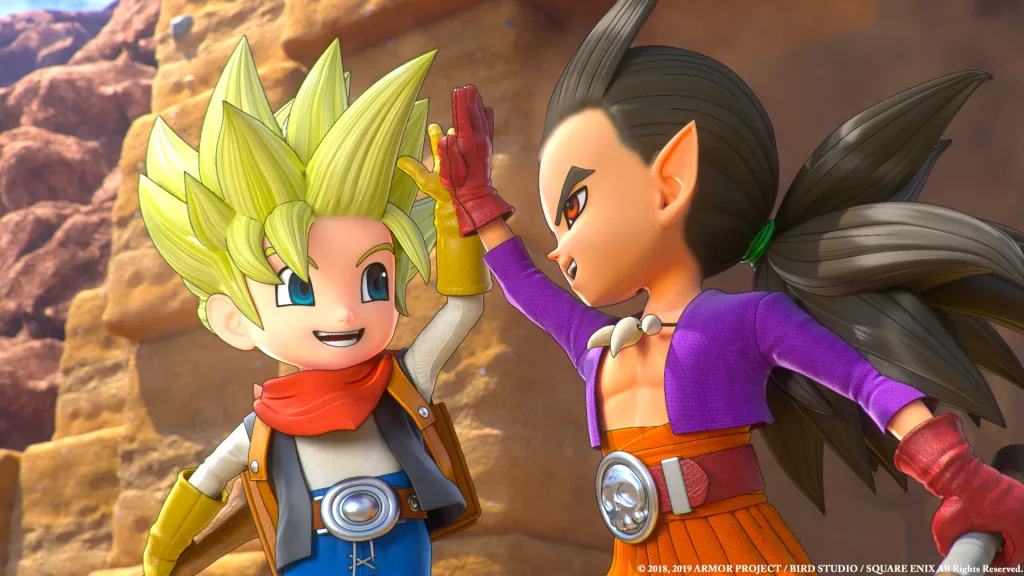“The Dragon Quest series chooses to focus on staying true to its roots by emphasizing consistency, simplicity, and refinement.”
-Brendino
Dragon Quest Strength #1: Consistency
If there’s one thing that can be said about all games in the main numbered Dragon Quest series, it is that they are consistent from one entry to the next. Players know what to expect when popping in a new Dragon Quest title for the first time. The setting will be high fantasy, the storyline will follow a traditional good-versus-evil approach, the player will control a silent protagonist, the monster and character designs will highlight the best of Akira Toriyama’s work, the music and sound effects will be recognizable from previous entries, and plenty of smile-inducing puns will be peppered throughout the dialogue and the world at large.
It is true that there have been a few entries in the series that did mix up the formula, albeit just a little bit. Dragon Quest X released as an MMORPG, albeit only in Japan thus far. Dragon Quest IX, released exclusively on the Nintendo DS, allowed players to create their own party members from scratch and even customize their appearance (although there weren’t really many different options). But beside a few tweaks and changes here and there, the structure, game mechanics, and world of Dragon Quest has remained largely unchanged.
I know my first battle will be with blue slimes. I will travel from town to town on a grand quest, each one with unique inhabitants and architectural styles. And each new town will bring with it a well to explore, plenty of pots and barrels to break in various houses and businesses, and a new quest or two to undertake. There will be new items in each successive town, along with new pieces of armor and more powerful weapons. The dungeons and overworld exploration areas between towns will allow me to level up my party members, gain new items, and earn valuable gold.
It is this predictable rhythm that for me is what truly sets Dragon Quest titles apart from other video game series. It is a testament to the stellar design of these games that the more I play them, the more they can both keep me engrossed and at the same time feel so second-nature as to be rote. Because the games are so familiar from one entry to the next, this allows the series to capitalize on the nostalgia fans have for Dragon Quest.
Dragon Quest titles for me are a lot like spaghetti and meatballs, my comfort food. More than any other food, homemade spaghetti and meatballs takes me back to my childhood, that bygone era where life seemed a lot simpler. In the same way, each time I play a new Dragon Quest title or replay a favorite, I am also transported back to various times in my life. Dragon Quest VIII will forever remind me of downtown apartment living with a new kitten and will forever be the first quest I saw through to the end. Dragon Quest IX continues to evoke a strong association with staying up late playing the game in bed on my 3DS, all while my boyfriend at the time slept like a log.
And so, for the past 36 years, consistency has remained a hallmark of each new entry in the series. While some critics may lament the lack of innovation and evolution in this series, Dragon Quest’s biggest fans celebrate the overwhelming nostalgia that comes with each new game. Because we know with each new entry exactly what we are getting and are ready to dive back into a world we know well.

